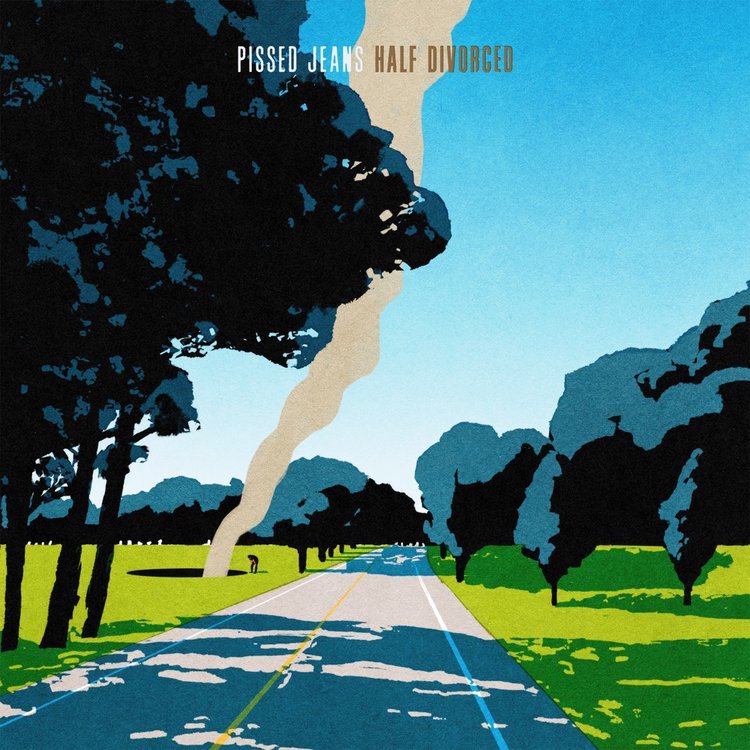Black Keys - Dropout Boogie
Black Keys
Dropout Boogie
By: Ava Ronning
The Black Keys have the ability to write tracks that will get the crowd jumping and shouting out the words, and for the most part, this is just not that kind of album.
Dropout Boogie marks Ohio rock duo The Black Keys’ comeback album after the band’s rest period due to fatigue and burnout.
It has the classic Black Keys elements of blues, rock n roll, and Americana, but with a more subdued sound. The lyrics center around these genres, with themes surrounding love, money, and perseverance.
The album is markedly different from previous works, which drummer Patrick Carney attributes to taking themselves less seriously and making room for improvisation.
It’s also the first time they’ve recorded with ZZ Top’s Billy Gibbons, which Carney said allowed for an exciting experience and a fresh perspective. There are even songs on this album that are first takes!
However, for so much of Gibbons’ expertise on this album, most of the record barely holds a candle to ZZ Top’s hit-making prowess.
Photo Cred: Joshua Black Wilkins
The opening track, “Wild Child,” is an upbeat, radio-worthy anthem that calls back to previous chart-topping tracks like “Lonely Boy” and “Gold on the Ceiling.” It even topped “Lonely Boy” on their Spotify charts for a brief time. It’s catchy, simple, and kicks off the album with full energy.
From then on, the mood mellows out. Their usual infectious guitar riffs and shout-worthy choruses are instead swapped out for more mid-tempo tracks, at least at first.
“For the Love of Money” is an exciting mix-and-match between their trademark style and newer elements. The verses display a softer approach to the vocals, which singer Dan Auerbach describes as an effort to make his voice “just another instrument instead of this big melody on top.”
Auerbach’s voice does just that - it lies softly over a simple beat and meshes beautifully with the instrumentation.
It masks the satirical greed of lyrics like, “for the love of money, we would do most anything - anything for a taste of honey, we would do it all again.” But then it opens up as it nears the chorus. A tasty blues guitar groove brings back the prominent vocals that fans are accustomed to hearing.
As the rhythm builds and the lyrical satire becomes more apparent, Auerbach sings out in a well-fitting gritty voice to match: “deals in the making, you just name your price, if your soul’s for sale, you just name your vice.” Both types of vocals work well in the proper context, and this song showcases both in the best way.
With each song nearing the end of the record, anticipation builds back up, and it ends with a bang, with the most upbeat songs, “Baby I’m Coming Home” and “Didn’t I Love You,” reminding fans that they’re still capable of making a classic Black Keys rock hit.
The emphasis leans back on the electric guitar, and it almost balances out the comparative lack of momentum throughout previous tracks.
On first listen, Dropout Boogie may come across as underwhelming or minimal compared to previous albums. This feeling makes it a record that is best appreciated as a standalone and listened to with minimal expectations gleaned from earlier works.
While it’s nice to hear an evolving sound from The Black Keys, it lacks drive.
They have the ability to write tracks that will get the crowd jumping and shouting out the words, and for the most part, this is just not that kind of album.
About half of Dropout Boogie are the kind of songs you might hear playing in a record shop rather than something you’d crank up loud while speeding down the highway.
Its most upbeat tracks still lack the power behind previous large-scale anthems like “Shine A Little Light” or “Run Right Back.” For that reason, Dropout Boogie is the kind of record that takes several listens to be fully appreciated for what it is.












